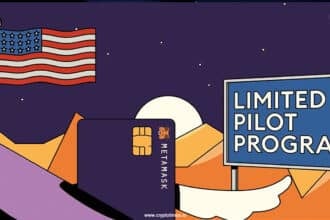El Salvador has agreed to make Bitcoin merchant acceptance voluntary and reduce its involvement with the state-backed Chivo wallet as part of a $1.4 billion loan deal with the International Monetary Fund (IMF).
The agreement, spanning 40 months, aims to improve the country’s debt-to-GDP ratio and includes significant changes to the government’s Bitcoin policies.

Under the new terms, the private sector will no longer be required to accept Bitcoin and public sector engagement with Bitcoin-related activities will be limited. The IMF noted that these measures will help minimize the risks associated with Bitcoin, a move that aligns with the Fund’s policies.
Additionally, taxes will be paid only in U.S. dollars, El Salvador’s official currency and the government will gradually unwind its involvement in the Chivo wallet, which has seen limited use.
El Salvador, which made Bitcoin legal tender in 2021, currently holds around 5,969 BTC, worth about $602 million. Despite the government’s push for Bitcoin adoption, a recent survey revealed that 92% of Salvadorans don’t use Bitcoin for transactions.
This agreement marks the end of a lengthy negotiation process and is subject to approval by the IMF Executive Board. It also paves the way for further financial support from global institutions, with a total financing deal expected to exceed $3.5 billion.
While the IMF has consistently expressed concerns about Bitcoin’s speculative risks, President Nayib Bukele’s Bitcoin adviser, Max Keiser, dismissed the IMF’s stance, calling the agreement “nonsense” and reaffirming Bitcoin’s voluntary use in El Salvador.
Also Read: Bitcoin Drops Below $100k as Powell Rejects BTC Reserve Plan






